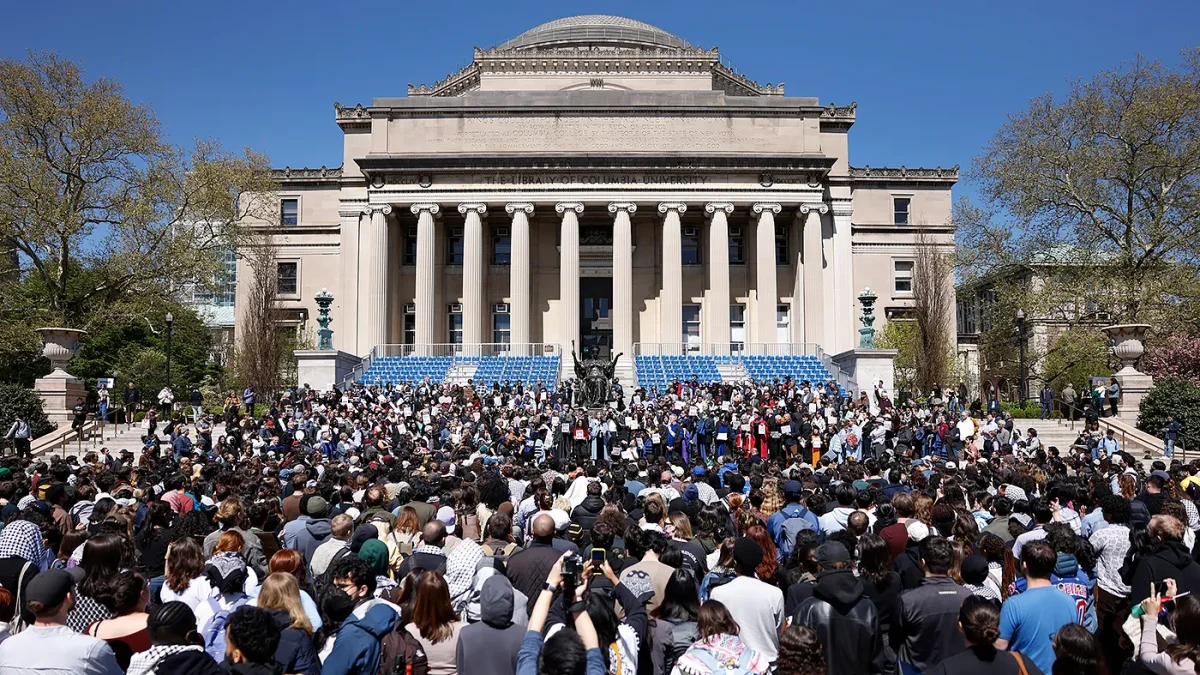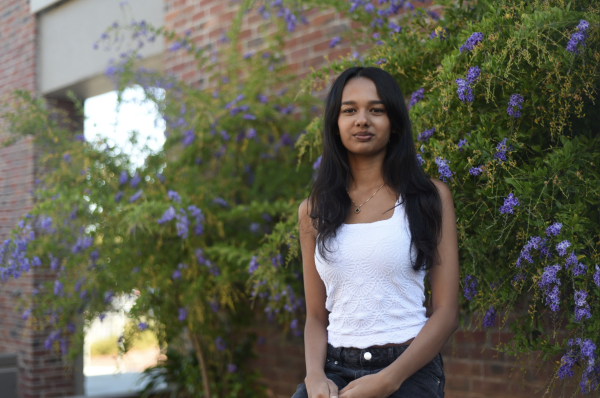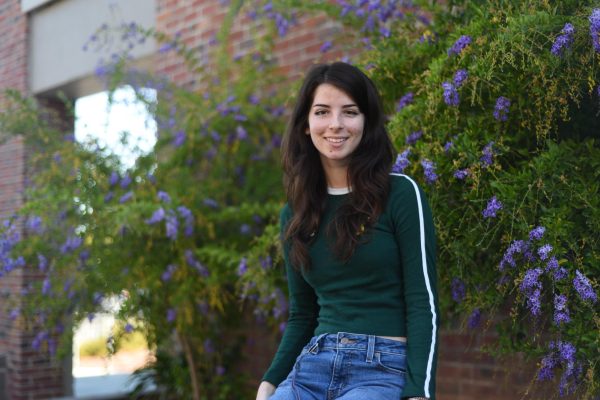When English teacher and green card holder Doug Leresche attended Queens College in New York in 2008, he and his Jewish classmate decided to live in tents on campus as a show of solidarity with refugees around the world. The following year, they tried to set up a similar encampment and planned to feature flags of refugees from around the world, including the Palestinian flag. However, Leresche was called into the university president’s office, where he was discouraged from displaying the Palestinian flag.
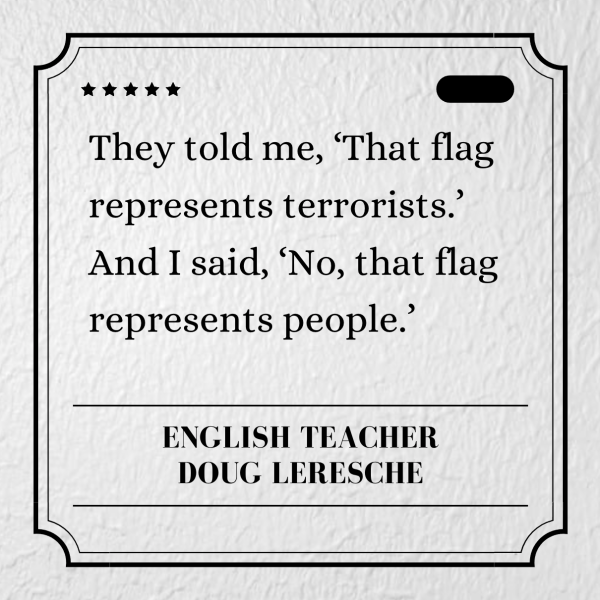
“They told me, ‘That flag represents terrorists,’” Leresche said. “And I said, ‘No, that flag represents people.’”
Leresche ended up conceding to the president’s request since he was afraid of potential consequences, such as suspension. While he regretted not putting the flag up for years, today, he is glad he didn’t due to his status as a non-citizen. Permanent residents, also known as green card-holders, are legally permitted to live and work in the U.S. and have many of the same rights and protections as citizens. However, in the past few months, nearly 600 college students on student visas or permanent residencies who participated in pro-Palestinian campus protests have been stripped of their immigration status and threatened with deportation by the Trump Administration.
Notably, on March 9, Columbia University alum ‘24 and Palestinian activist Mahmoud Khalil was detained for protesting and had his green card revoked. His arrest was the first widely-publicized deportation effort by the Trump administration, which has pledged to crack down on pro-Palestinian student activists claiming that they align with Hamas, a designated terrorist organization. Trump’s administration has further threatened to cut millions of dollars in federal funding from universities with protests on their campuses, including $400 million from Columbia.
Sophomore Ruqayyah Harb, who has participated in several pro-Palestinian protests and visited an encampment at Stanford, believes that equating pro-Palestinian activism with antisemitic and pro-Hamas ideologies is harmful, as she says many pro-Palestinian activists are Jewish themselves and are simply seeking an end to the war in Gaza.
While Harb hasn’t seen any outright antisemitic demonstrations during protests, Columbia senior and Columbia Spectator staff writer August Phillips — who has reported on several protests — has noticed some instances of antisemitism on his campus. However, he believes the vast majority of protest action is not antisemitic, and the Trump administration and the media has incorrectly portrayed all of Columbia’s student activism as being pro-Hamas.
“The amount of attention in reporting that’s directed towards this issue of antisemitism on campus has been woven into a very convincing narrative of what’s going on in campuses across the nation,” Phillips said. “There’s a lot of ways to characterize the protests, and the media has been able to use a lot of rhetoric that I wouldn’t count as antisemitism playing into the problem.”
Senior legal counsel Mike Hiestand from the Student Press Law Center also expresses his concern with grouping activists with terrorists, especially after Tufts University op-ed co-writer Rumeysa Ozturk was arrested off the street by plainclothes ICE agents. Following her detainment, U.S. Secretary of State Marco Rubio characterized her conduct as terroristic in a press conference. Hiestand explains that the op-ed, that criticized Tufts’ response to Israel’s alleged genocide in Gaza, is protected speech and the administration cannot “willy-nilly determine that it’s not.”
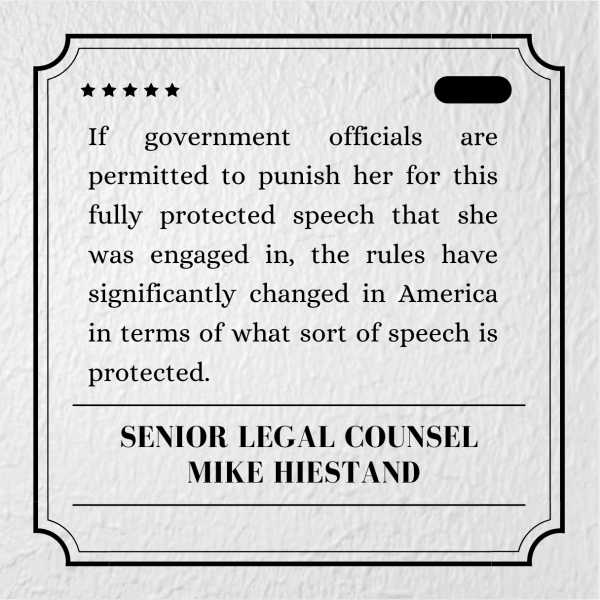
“It’s just nonsensical,” Hiestand said. “It’s alarming. It’s unprecedented. Her speech is protected — there’s nothing unlawful about it. And when you’re in the U.S. you have the same sort of First Amendment rights as anyone in the country has. If government officials are permitted to punish her for this fully protected speech that she was engaged in, the rules have significantly changed in America in terms of what sort of speech is protected.”
Leresche agrees with Hiestand and condemns the deportations, especially as an advocate for migrants whom he says don’t fit the “very narrow” definition of what a refugee is. He finds the deportations to be unjust, especially since those being deported are legally in the U.S.
“The deportations go against everything America stands for — the idea that this is a place where people can come and make something of themselves,” Leresche said. “It goes against the reality of how hard immigrants work and how much they want to be a part of society — a part of America.”
The Student Press Law Center, along with 11 free speech and journalism organizations agrees with Leresche and had condemned Ozturk’s detainment in a letter published March 28 stating that “this is precisely the type of speech that should be welcomed and protected at universities.” The following Thursday, an alert was sent to student journalists to rethink how they work with sources and staffers to protect themselves when covering these topics.
As a news reporter, Phillips has never felt seriously threatened in his ability to publish his pieces despite the repercussions that others have faced around the nation. The Columbia Spectator is independent from the school, allowing less oversight from school authority figures despite the slight tension between them. However, Phillips notes that Spectator op-eds about the protests have received mixed opinions and bold reactions from the student body.
Specifically, Phillips recounts an occupation of Hamilton Hall, a building in Columbia, by protesters. School authorities had shut down campus and prohibited people from entering or leaving, including the press. Afterwards, the Spectator’s editors sent out a letter regarding the event, stating that Columbia had restricted journalistic freedom by, according to Phillips, “seemingly not letting eyes on campus to watch them arrest all the students that were there.”
Hiestand believes that, although school authorities and government officials are restricting these freedoms, it’s important for student journalists to remain safe. He explains that journalists as well as student advocates must avoid facing unwarranted backlash for their opinions, and encourages student journalists to opt for anonymous articles or sources. Harb agrees and feels it’s ironic that the same government claiming to support freedom is arresting and suppressing students for voicing their opinions.
“It begs the question, what rights are they actually supporting?” Harb said. “If we don’t have the right to freedom of speech, the right to assemble, the right to protest, then what rights are being protected?”





